There’s No Such Thing As Writer’s Block by Carmel McMurdo Audsley
There is no such thing as writer’s block – end of story. Anyone who says they have this so-called affliction is just being lazy and stalling for time. If you call yourself a writer then that is what you do – write, about anything or anyone. The key to becoming a good writer is simply to write. I have held many classes for creative writers and I always start with one simple exercise. I tell my students to choose any object in the room – a pencil, book, glasses case or whatever is within easy reach. Then I ask them to describe that item – the way it looks, feels and smells or even tastes. Take a pencil for example. It may be six inches long and painted red with a logo. It may be a lead or coloured pencil. It could be blunt or sharp. If it has been recently sharpened perhaps you can smell the wood shavings. Then you might think about who used the pencil before you picked it up and what they may have written with it. After a few minutes you have a description about a seemingly ordinary object and you have a little story. When you have a bigger project such as the beginning of a book, or the opening of a chapter, simply write. Our minds are always ticking over and quite often you know what you want to say but you just can’t find the right words to put on the paper. So start with the wrong words, any words, but just start writing. Once you get your initial thoughts on paper you can come back later and rearrange the words to mean your intention. If you think you don’t even have a thought, then you are wrong. The thought may not be related to the subject of your book, but right down your thoughts anyway. Once you start the process of writing then the right words will come to you. Like actors, a lot of motivation and ideas for writers come from observing people. To get inspiration, take yourself off to the local bus stop, train station or shopping mall and just sit still and watch the passing parade. You will get descriptions for your characters – what they look like, the colour of their hair and eyes, the clothes they are wearing, the things they do – and you can create your own characters from the people you observe. Always carry a little notebook with you and keep a pen and paper by your bedside. I often have great ideas last thing at night but would never remember them if I didn’t write them down before I go to sleep. Sometimes in the morning the idea doesn’t seem as great, but at least it’s there in case I need it. In summary, there is no reason for anyone to ever say they have writer’s block. If you are truly a writer, then you will always find something to write about. The more you write...
Read More130,000 Reasons I Gave The Fox Away by Arlene Radasky
In 2004 through 2008, during and after writing The Fox, I had dreams of a big publishing house picking it up and having it reach at least the top half of the New York Times best seller list. Don’t we all? Well, after a friend and I attended the 22nd Southern California Writer’s conference in San Diego, Feb. 2008, my hopes and dreams changed. The first reason was this: Just before I finished my book, I took a long walk through my local Border’s; I imagined I saw my book sitting–right there. But reality set in and as I looked around, I wondered how on earth a person walking through that huge store would be able to find my book! All the other books in the store overwhelmed even the books that were best sellers. The second reason was a writers’ conference I attended after writing The Fox. We were told if an agent or publisher chooses your book, you probably would have to spend money to hire an editor and/or a publicist. The publishing houses barely get the books of unknown authors into stores and Amazon.com. Selling them is all up to you. If you want to sell more than the ten you would sell to your family and friends, (remember Borders) then you have to work at it ceaselessly. This works well if you are retired or independently wealthy. The big publishing houses are in trouble. They can’t give out big advances to new fiction authors because they don’t usually make their money back and don’t spend money on marketing. Comments by agents and publishers on the last panel: “There will be books as long as there is paper.” “We will be here as long as you writer’s do your work. Write the best books you can, do your homework and buy books! Paperback book sales are declining.” “Send your query in with a full marketing plan, or I probably won’t accept you.” And so I decided to give my novel away as an ebook. I wanted it read. I have not been sorry at all. I had seen the surge in digital technology, the Kindle, Apple products and more and at the time of the conference, I knew it was the way of the future. I heard some say, “I love to sit and hold a book in my hand!” but you can put a good leather cover on the Kindle and sit by the fire with a glass of wine and read many books, newspapers, and magazines without putting one down to find the other. They are all right in your hands. iPods can download podcasts for our audible pleasure and I am admitting here and now, that I rarely buy paper books anymore. I have listened to many recorded/podcasted books from Podiobooks.com. Having traveled with a suitcase full of books in the past I now carry many in my iPad. I created a website and loaded a PDF of my book there first. In the...
Read MoreAre you Suffering from Writer’s Block? by Toni Seger
There’s nothing that frightens writers more than writer’s block, that massive impenetrable barrier that can crash down between you and the page and make your writing life untenable. The distinguished poet, Friedrich Schiller, sniffed rotting apples to overcome writer’s block. In the 18th century, it was thought this awful aroma stimulated creativity, but the most famous case of writer’s block is probably the celebrated poet Rainer Maria Rilke. Rilke waged a titanic struggle against writer’s block he only won after 13 years of struggle and depression when he produced the Duino Elegies swiftly followed by the Sonnets to Orpheus, some of the most sublime poetry ever written. If you’re afflicted with writer’s block or just flirting with it, here are my thoughts. Writing can be a very stressful activity and what most often hangs up writers is getting started on a new piece. Yes, we get to work sitting down, but there’s still plenty of heavy lifting like the intimidating sight of a blank page. Once you have something to work on, your task changes from getting it down to making it better and because you can always see ways to improve something, that task tends to come easier. The first thing you want to do is make sure your blank page doesn’t stay blank for very long because it’s the blankness that’s making you feel bad. Winston Churchill who liked to paint wrote about his initial struggle to face down an empty canvas. He approached it timidly with the tiniest of strokes so as to avoid making a mistake when his neighbor’s wife grabbed a large brush and placed several bold strokes on the canvas! The effect was immediate. Churchill broke through his inhibitions and threw himself into painting. The principle is the same with words. What most often stops writers is thinking their initial draft has to be perfect when it doesn’t even have to be intelligible. The point of a first draft is to get past the blankness even if what you write is gibberish. Never forget, nothing you write is fatal because you can always rewrite it. An initial draft is a form of free association. You start with your original idea, then let your mind wander and record anything that occurs to you. It may be dialogue or description or narration. It may be a reference to something you read somewhere else. It may be a news item or a casual conversation you overheard. It could be anything. Whatever it is, you’re intrigued so let your mind play with it and write down whatever occurs to you. At this point, don’t try to control the process. Just follow a thought wherever it leads. Chances are, something more will occur to you. So, write it down. Don’t expect to be in complete control of the process until you’ve roughed out an entire draft and are ready to refine and polish. Control also plays a role when you’re fleshing out ideas, improving syntax, reworking words so...
Read MoreWriting Fast-Paced Action Scenes by Rayne Hall
In scenes with fast action – such as chases and fights – your writing style needs to reflect the speed. The words you choose, and the way you structure your sentences, can create a fast, exciting pace which takes the reader’s breath away. Sentences The length of your sentences creates the pace of your scene. In a fight scene, sentences need to be short, especially when the action speeds up. If a sentence is more than twelve words long, split it into two shorter ones. Some sentences can be very short indeed: He leaped. She kicked. Blades clanked. To vary the rhythm, insert the occasional medium-length sentence, but avoid long ones with many clauses. When the action happens really fast, you can use sentence fragments instead of complete sentences; For example: He had to get through to the castle. Had to reach that door. He hacked, swung, slashed. Five paces left. He leaped. Use this trick sparingly, only for the fastest-paced moments, since sentence fragments become tedious if overused. Words Short words create a fast, sharp rhythm, so use the shortest available word for the job. Words with single syllables are best. Two syllables are ok, three syllables are so-so, and anything longer doesn’t belong in a fight scene. When revising your fight scene, replace long words with short ones. Instead of immediately write at once. Instead of endeavour write try. Instead of indicate write point at. Instead of investigate write check out. Verbs (hack, swing, slash, kick) convey action and create a fast pace. You can use several verbs in a sentence, for example: She bit, she scratched, she screamed. or They slashed and sliced, they blocked and parried. Simple Past Tense (hacked, swung, slashed, kicked) is the best for fast-paced action. Avoid Past Perfect Tense (had hacked, had swung, had slashed, had kicked) because it’s a pace-killer. Be careful about using the ing-form of the verb (present participles and gerunds: hacking, swinging, slashing, kicking). Although it conveys immediacy, it sounds soft and can spoil the pace, so use it sparingly. Adjectives (blunt, strong, irresistible) slow the pace, so use only a few. Adverbs (bluntly, strongly, irresistibly) slow the pace enormously, so you may want to avoid them in your fight scenes. Use as few conjunctions and link words (and, but, or, when, then, after, before, while, because, in order to, therefore, thereby, as) as possible. For example, instead of He grabbed the liana with both hands, and then he swung across the stream and landed in the mud. write: He grabbed the liana with both hands, swung across the stream, landed in the mud. Instead of After that, he raised his arm, thereby warding off blows. write: He raised his arm to ward off blows. Euphonics T, K and P sounds create a fast pace and a sense of aggressiveness, so use lots of them in action scenes. For example: Instead of swallow write gulp. Instead of hold write grip. The best sound for chases, races and anything...
Read More(Writer’s) Relief For All Your Submission Aches And Pains
by Writer’s Relief Suffering from submission fatigue? Writer’s Relief is happy to be here on Virtual Writers today to tell you a little bit about how our system helps creative writers make better, more professional, more efficient submissions to literary agents and editors. The Beginning of Writer’s Relief Writer’s Relief was born in 1994 when a friend asked Ronnie L. Smith to manage her poetry submissions for her. Since then, we’ve been helping poets and short prose writers successfully submit their works for publication in literary journals. We’ve also been helping novelists, memoirists, and other book authors connect with literary agents so they can get their books published at major presses. How We Work We can handle as much or as little of the submission process as our clients like. Some clients want us to do everything—from proofreading and formatting, to researching the best-suited literary agents or editors, to putting submissions in the mail (or submitting online), to tracking editorial feedback from readers. Other clients just want our expert targeting; we do the research and provide a handpicked list of the best markets for a given work. Either way, writers pay a flat fee for this ultra-specialized secretarial and consulting service. Visit our website to learn more about our various services, and find the one that will solve your submission woes. What Can Writers Get For Free? Writer’s Relief offers many, many freebies on our website. These are just a few of the free writers resources that can improve your submission strategy: Free Publishing Tool Kit Free Tutorials For Online Submissions Free Subscription to the hot publishing leads and tips in Submit Write Now! (30,000+ writers currently subscribe) Plus, we also host regular contests, giveaways, and games on our social networks like Facebook and Twitter. So stop by and say hello today! Writer’s Relief has been helping creative writers make better, more effective submissions since 1994—and we’re still going strong. Thanks so much to Virtual Writers for hosting us today! QUESTION: What part of the submission process do you find most burdensome? Picture Credit: Colin Adamson This article was first published at Author Essentials on July 30th,...
Read MorePoetry and Craft by Timothy Victor Richardson
Poetry, at its best, goes beyond anything we can put a finger on to something we can only say has an emotional force we can’t forget. That is why I believe it is a sacred art form and why it has lasted for so many centuries. As with all the arts, it’s the feeling a poem gives us we can’t forget and want to feel again. It’s the reason we return, again and again, to lines that effectively capture something in the deeper reaches of the collective soul. In attempting to reach this deeper “something”, it greatly helps to master all the tools and techniques the craft of poetry encompasses. Whether writing dialogue for a play, prose, free verse or formal poetry, it’s all enhanced by mastering the craft. The craft of poetry’s basic elements are form, meter, rhythm and rhyme. Forms like sonnets, villanelles and sestinas are like human bodies that can perform who knows how many different kinds of dance. While the content of a dance or a poem can be old and stale or new and exciting, the instrument (the body or form) can be used to express anything from the past, present or future. Any whole body is capable of performing any kind of dance. All poetry, all art has a form. It’s just a question of how well the form suits what the poet seeks to realize. Meter describes where the accents fall and how many unaccented syllables there are between them. As the poet, Timothy Steele, points out in “Prosody for 21st-Century Poets”, because different words carry lighter or heavier accents, the variety of rhythms that can be superimposed on any given meter is endless. A poem’s meter is like a musical time signature. How many different tunes can be written in 4/4 time, for instance? Any number. How many lines can be written in iambic pentameter, say? The answer is the same. What makes one line better than another (among many other things) is how well the poet harmonizes meter and rhythm. When they are working together, a memorable line is more likely to result. However constraining meter might feel when a poet first uses it, with practice, any discomfort wears off in time. Practicing with meter using different rhythms is like playing a musical instrument. At first, nothing feels more clumsy than finding the right words within the strictures of meter. Like any other discipline, however, practice and experience make it feel far more natural until it becomes second nature. After all, no one expects a neophyte skater to leap and spin with perfect form and it’s no different with meter and rhythm. The more conscious you are of them, the better the effects you produce will be. People often remember the melody of a song even when they’ve forgotten the words and it works the same with poetry. The rhythm of a line is recalled more readily than its words and that’s due to the feeling it instills. Different meters...
Read More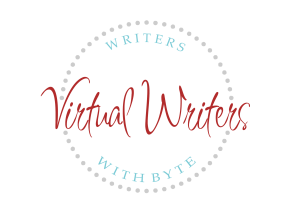



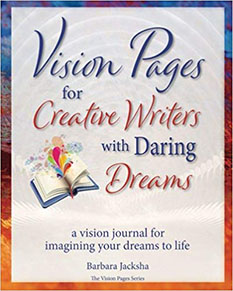
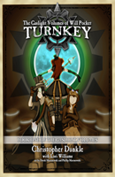
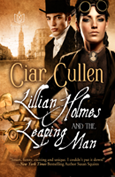
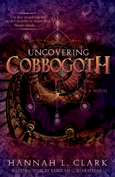
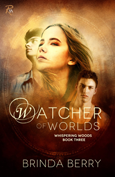
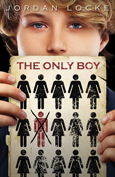
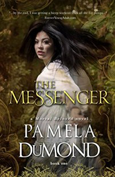
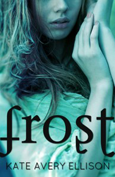
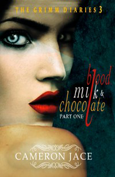
Follow Me